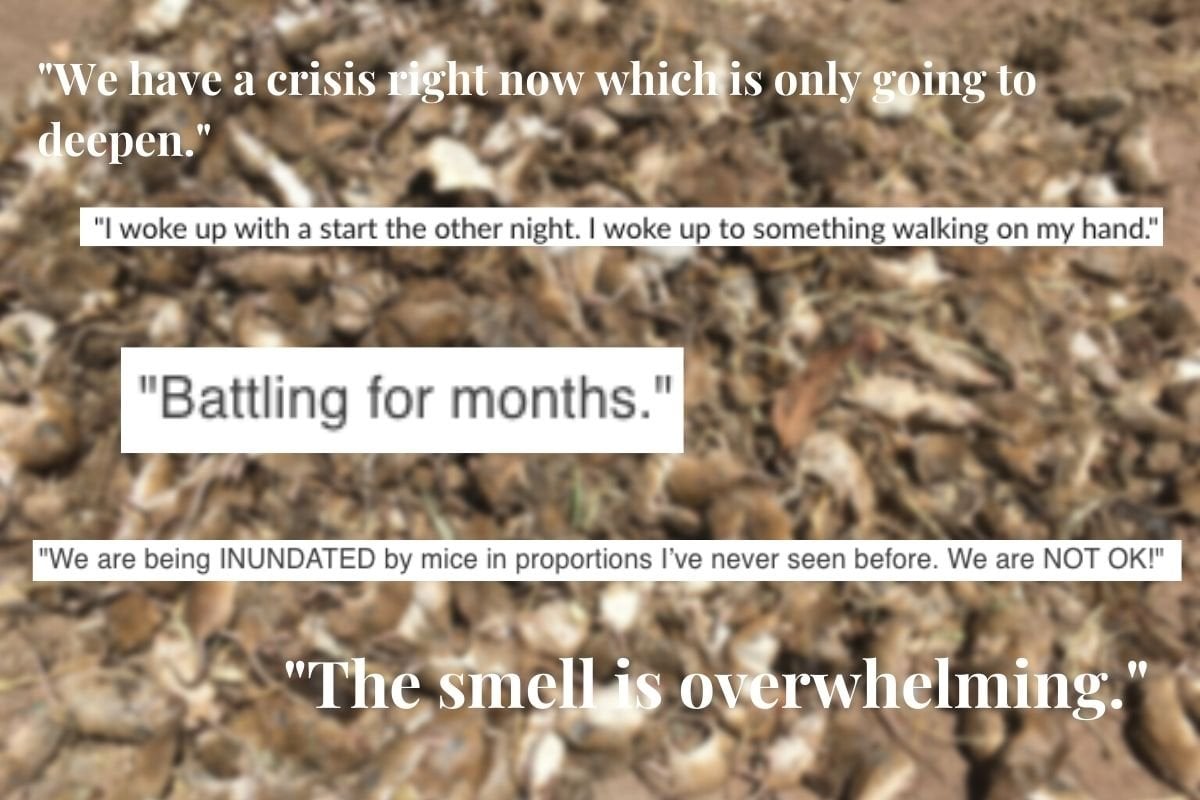
There are millions of them.
They're destroying crops, gnawing their way through months of cafe and supermarket stocks, and inundating homes, hospitals and hotels right across inland eastern Australia.
Mice infestations are a natural occurrence in this country, but what we're experiencing right now is different and our country friends are not okay.
For those of us creeped out by one mouse (*shudders*), this is literally the stuff of nightmares.
Watch: This was filmed on a farm near Gilgandra. Post continues after video.
It's been described as a plague of "biblical proportions" or a "carpet" of mice. It's the worst infestation we've seen in Australia in decades - and it's been going on for almost a year.
They emerged after a bumper grain harvest and have been leaving a trail of destruction since July 2020 in some regions, with the recent deluges of rain sending them indoors in even larger numbers.
The smell is unbearable, they breed at unprecedented rates and locals are finding them in their beds and running through their walls and ceilings.

Top Comments